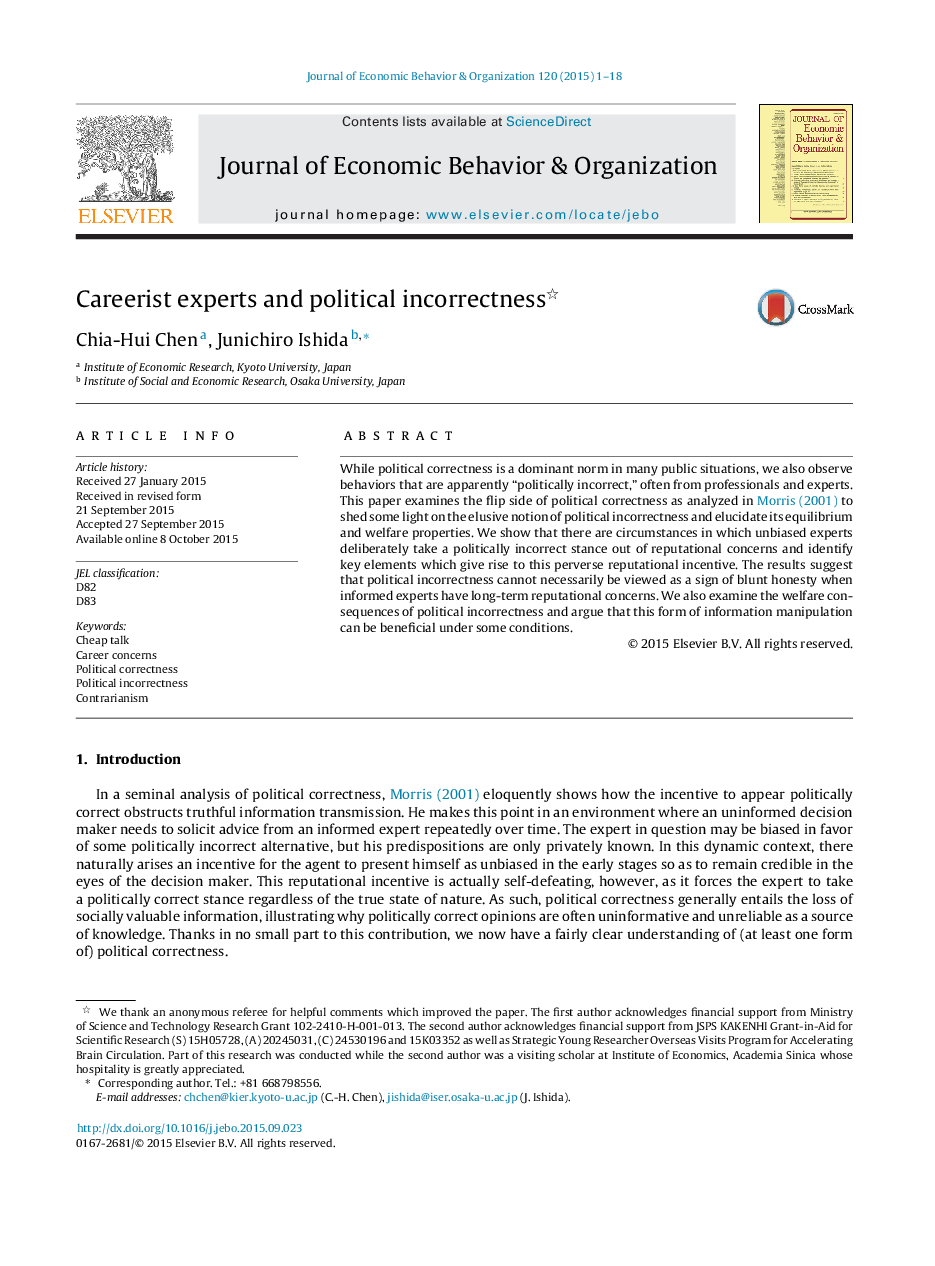| Article ID | Journal | Published Year | Pages | File Type |
|---|---|---|---|---|
| 883439 | Journal of Economic Behavior & Organization | 2015 | 18 Pages |
•We consider the flip side of political correctness as analyzed in Morris (2000).•Unbiased experts may deliberately take a politically incorrect stance.•Politically incorrect opinions cannot necessarily be a sign of blunt honesty.•This form of information manipulation can improve welfare.
While political correctness is a dominant norm in many public situations, we also observe behaviors that are apparently “politically incorrect,” often from professionals and experts. This paper examines the flip side of political correctness as analyzed in Morris (2001) to shed some light on the elusive notion of political incorrectness and elucidate its equilibrium and welfare properties. We show that there are circumstances in which unbiased experts deliberately take a politically incorrect stance out of reputational concerns and identify key elements which give rise to this perverse reputational incentive. The results suggest that political incorrectness cannot necessarily be viewed as a sign of blunt honesty when informed experts have long-term reputational concerns. We also examine the welfare consequences of political incorrectness and argue that this form of information manipulation can be beneficial under some conditions.
